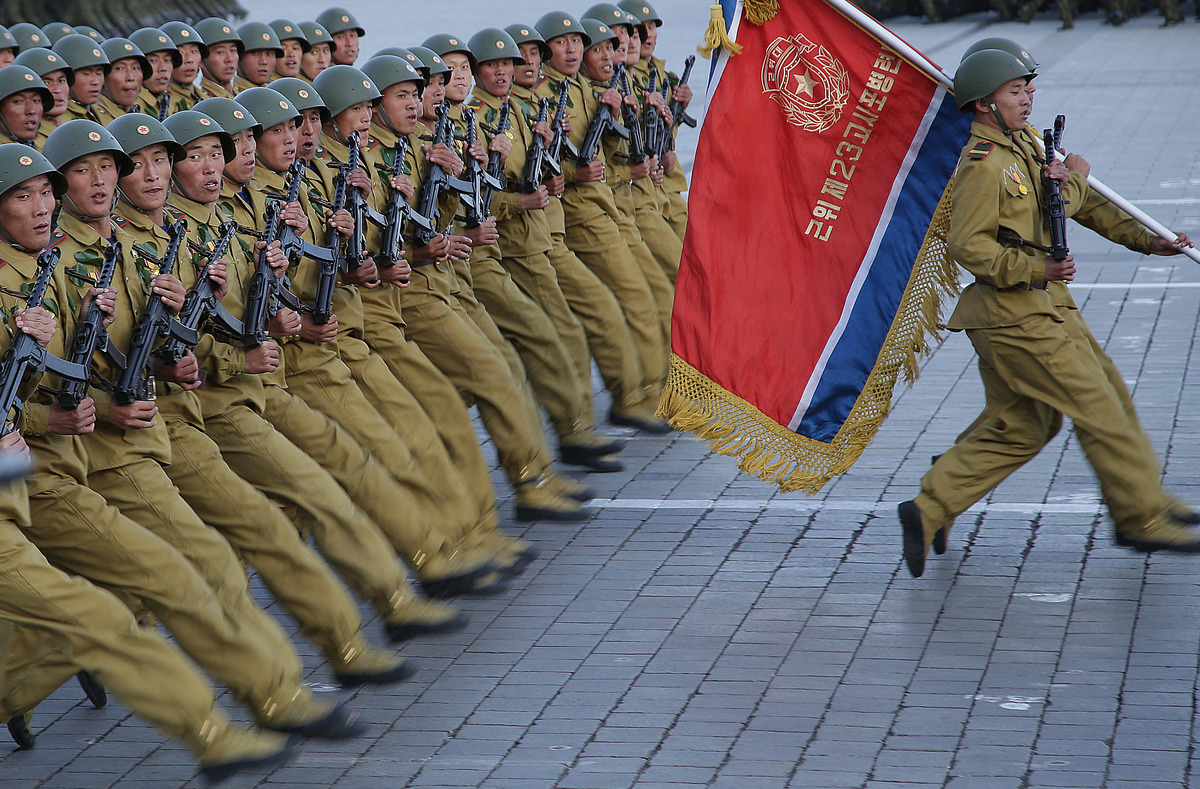The Russian military has recruited "hundreds" of Yemeni fighters, according to a new report, as Moscow pays dearly in casualty counts for gains in eastern Ukraine.
Yemeni citizens were promised high wages and Russian citizenship before traveling to Russia to be "forcibly inducted into Moscow's army and sent to the front lines in Ukraine," the Financial Times reported on Sunday. The travel was facilitated by a company linked to Yemen's Houthi rebels.
Newsweek has reached out to the Russian Foreign Ministry for comment via email.
It's not clear how close Russia is with the Houthis, which maintain control of swathes of the country devastated by civil war.
But the grinding conflict in Ukraine has seen Russia—a pariah state in the eyes of many Western countries—court relationships with countries hostile to the U.S. and other nations backing Ukraine.
Russia has also looked for ways to replenish its ranks, well over two and a half years into the war. Moscow has steadily gained in Ukraine's east while also attempting to push back Kyiv's grip on Russian soil in its border Kursk region.
The Kremlin relies heavily on what are known as "meat grinder" tactics, which have generated high casualties among its infantry soldiers that are thrown toward Ukraine's defenses.
Ukrainian numbers put the total number of Russian soldiers killed and injured at more than 730,000. This could not be independently verified and Western estimates typically come in slightly lower. Ukraine is similarly grappling with how to sustain its armed forces.
Upward of 10,000 North Korean soldiers have been deployed to Kursk, according to U.S., Ukrainian and South Korean intelligence.

Russia's armed forces have used mercenaries to bolster its personnel along the front lines throughout the war. It was Russia's Wagner Group of mercenaries—dubbed private military companies, in Kremlin parlance—that declared Russian control over the eastern Ukrainian city of Bakhmut in May 2023.
Wagner fighters, led by former Vladimir Putin ally Yevgeny Prigozhin, then launched a short-lived mutiny against the Kremlin in the summer of 2023. Prigozhin was killed in a plane crash shortly after the uprising failed, and the Wagner influence tailed off.
Earlier this year, CNN reported that around 15,000 Nepalis had been recruited into Moscow's military effort against Ukraine, lured by lucrative salaries and the promise of a Russian passport.
Ukraine's GUR military intelligence agency has said Russia had recruited Syrian citizens into its military. Fighters received training close to the Syrian city of Aleppo before heading for the Khmeimim air base to the southwest of the city and then onto Russian territory, the GUR said in a public statement in February.
The fighters were recruited through tourism companies, promised passports and higher-paying jobs on Russian soil, the GUR said. Days later, the military intelligence agency published names of those it said were Syrian mercenaries fighting for Russia.
The U.S. special envoy for Yemen, Tim Lenderking, told Business Insider earlier this month that there was "a fairly serious level of engagement happening" between Russia and the Iran-backed Houthi rebels that have been firing on U.S. and Western vessels in the Red Sea and Gulf of Aden in recent months.
Iran, a key Moscow ally, has provided drones and missiles for the war in Ukraine. Russia's Deputy Foreign Minister, Mikhail Bogdanov, hosted a delegation of Houthi officials in Moscow earlier this year.
"We are particularly concerned about the kind of equipment that would really enable the Houthis to be more accurate in their targeting of U.S. and other ships in the region—that would enhance the Houthi capability to strike those targets," Lenderking said.



















 English (US) ·
English (US) ·